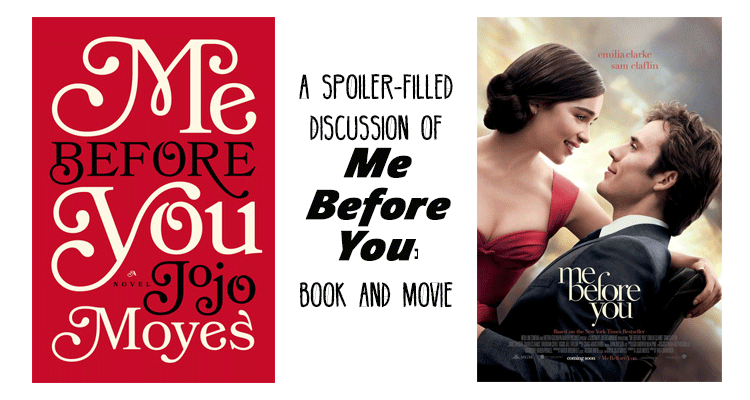
But after the rape, Lou says, she wanted to make herself as "unattractive" to men as possible, dressing in kooky clothing and styling herself in a way she thought they'd hate. As she describes herself before the incident, she dressed much more suggestively in spiky heels, skinny jeans, and revealing tops. That horrible incident is actually why Louisa dresses the way she does, in quirky, retro clothes that seem to come straight from Mod Cloth or Miss L Fire. It is implied, through Louisa's recounting of the story, that she was gang raped, after which she decided to abandon her college plans and stay home where she felt safe. While partying as an impressionable teen, Louisa got drunk and was lured into a local hedge maze by a group of older, soccer-playing men.

As it turns out in the book, Lou was headed for college, but tragedy struck just before she left.

One of the things Will wonders about Louisa is why she's never left their quaint, medieval English town to see any of the outside world, or even attend college. As one can probably tell from the trailer, the two start off butting heads but eventually fall in love, with Will's condition looming over their happiness. Louisa, on the other hand, remains a bolt of energy her quirky clothing and bubbly personality offer a different pace for Will. Will is miserable and takes his misery out on the unsuspecting girl hired to care for him. Me Before You tells the story of Louisa Clark, a small-town Brit who, after struggling to find a job, is hired as a caretaker for Will Traynor, a quadriplegic man.

Retaining it for the screen would have resulted in another unwelcome entry into the already full cannon of films that include extraneous instances of sexual assault against women. The film, which stars Emilia Clarke and Sam Claflin and opens Friday, June 3, omits a troubling subplot - a rape that seems out of place in an already dark book. But the film version of Jojo Moyes' best-seller, Me Before You, thankfully does so in a way that improves the story. Very often, film adaptations of popular books exclude beloved plot points or characters, much to the chagrin of devoted fans.


 0 kommentar(er)
0 kommentar(er)
